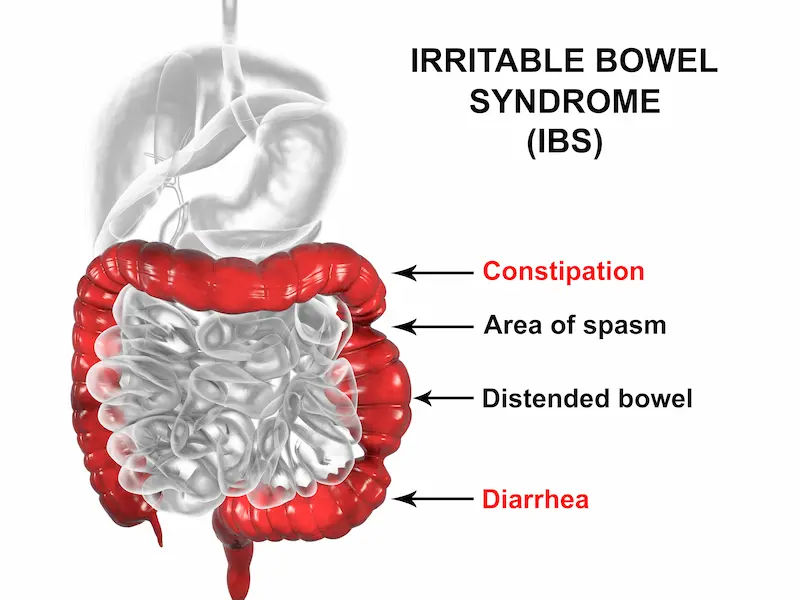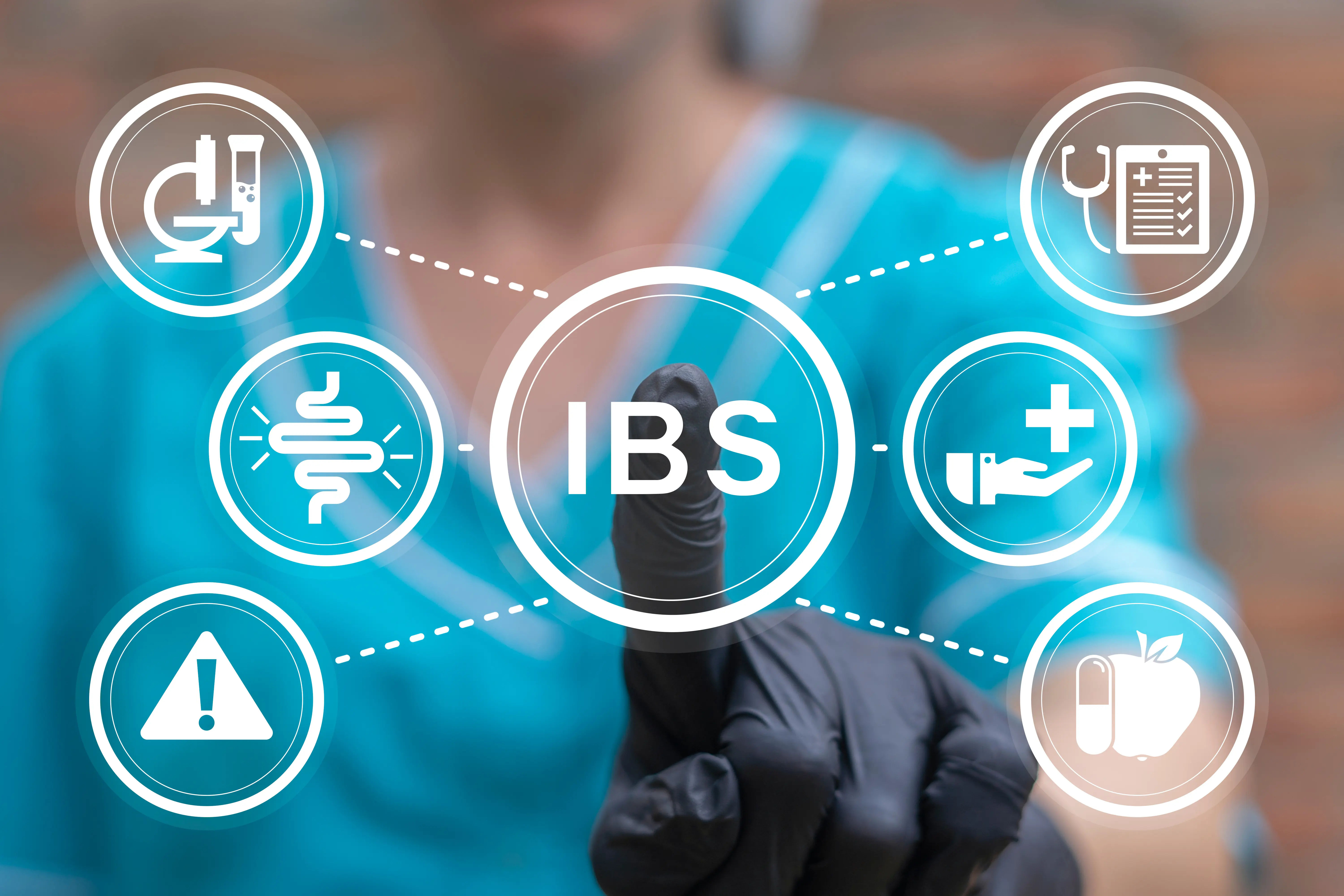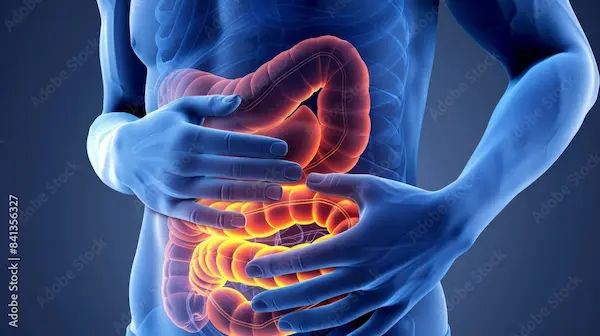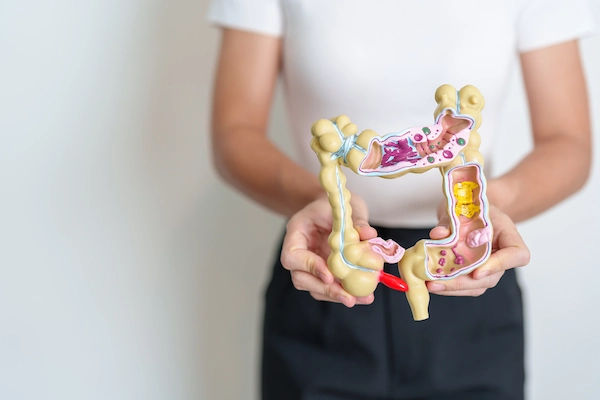Guide to World Ibs Day
"Learn about World IBS Day, a global event dedicated to raising awareness for Irritable Bowel Syndrome. Find resources, support, and information on this comprehensive guide."

Written by Dr. M L Ezhilarasan
Reviewed by Dr. Rohinipriyanka Pondugula MBBS
Last updated on 13th Jan, 2026

World IBS Day: Understanding, Managing, and Thriving with IBS
Irritable Bowel Syndrome (IBS) is more than just an occasional stomach ache; it's a complex, often misunderstood chronic condition that affects millions worldwide. It can dictate daily routines, influence social choices, and impact mental wellbeing. But you are not alone. Every year, World IBS Day serves as a global beacon of awareness, support, and hope for those navigating life with this condition. This day is dedicated to breaking the silence, eradicating the stigma, and empowering individuals with knowledge and effective strategies. This comprehensive guide will walk you through everything you need to know about World IBS Day, the intricacies of IBS itself, and practical, evidence-based steps you can take to manage your symptoms and reclaim your quality of life. Let's start the conversation.
Consult a General Physician
What is World IBS Day?
World IBS Day is an annual awareness event observed on April 19th. It is a coordinated effort by patient organizations, healthcare professionals, and advocacy groups across the globe to shine a light on Irritable Bowel Syndrome.
The History and Mission
Initiated by the International Foundation for Gastrointestinal Disorders (IFFGD) over two decades ago, the day was created to address the widespread lack of understanding and the significant silence surrounding IBS. The core mission is multifaceted: to educate the public and healthcare providers about the reality of living with a functional gastrointestinal disorder, to advocate for more research into better treatments, and to create a sense of community for patients who often suffer in isolation.
Annual Themes and Global Participation
Each year, World IBS Day focuses on a specific theme, such as "IBS and Mental Health" or "Unmasking the Myths." Activities include educational webinars, social media campaigns using hashtags like WorldIBSDay, sharing patient stories to foster connection, and providing free resources from reputable health organizations. This global participation helps to normalize the conversation about digestive health and encourages individuals to seek help without shame.
What exactly is Irritable Bowel Syndrome (IBS)?
IBS is a common disorder that affects the large intestine (colon). It is classified as a functional disorder, meaning it's related to problems with how the gut and brain interact, leading to hypersensitive nerves in the digestive tract. It's important to remember that while IBS causes significant discomfort, it does not damage the intestines or increase the risk of colorectal cancer.
Common Symptoms of IBS
Symptoms vary from person to person and can even fluctuate in the same individual. The most common include:
- Abdominal pain or cramping, often relieved by a bowel movement.
- Bloating and gas.
- Diarrhea (IBSD), constipation (IBSC), or a mix of both (IBSM).
- Changes in the frequency or consistency of stool.
- Mucus in the stool.
How IBS Differs from Other Digestive Disorders?
A key distinction is that IBS is not the same as Inflammatory Bowel Disease (IBD). IBD, which includes Crohn's disease and ulcerative colitis, involves chronic inflammation and visible damage to the digestive tract, which can be seen during a colonoscopy. IBS does not cause this inflammation or damage. If your symptoms include unexplained weight loss, rectal bleeding, or persistent fever, it is crucial to consult a doctor to rule out other conditions like IBD.
What Causes IBS? Unraveling the Mystery
The exact cause of IBS remains unknown, but research points to a combination of factors.
The Gut-Brain Connection
This is a primary area of focus. Miscommunication between the nerves in your brain and your gut can cause your body to overreact to normal digestive processes, leading to pain, diarrhea, or constipation. This is why stress and anxiety are potent IBS triggers.
Common IBS Triggers to Be Aware Of
- Foods: Dairy products, citrus fruits, beans, cabbage, and carbonated drinks are common culprits.
- Stress: Most people with IBS find their signs and symptoms worsen during periods of increased stress.
- Hormones: Women are twice as likely to have IBS, and many find symptoms flare around their menstrual periods.
- Infections: A severe bout of gastroenteritis can trigger the onset of IBS.
How is IBS Diagnosed?
There is no single, definitive test for IBS. Diagnosis is typically a process of elimination.
The Rome IV Criteria
Doctors often use the Rome IV criteria, which requires abdominal pain occurring at least one day per week in the last three months, associated with two or more of the following: related to defecation, a change in the frequency of stool, or a change in the form of stool.
Ruling Out Other Conditions
To rule out celiac disease, IBD, or infections, your doctor may recommend tests like blood tests, stool tests, hydrogen breath tests for SIBO, or a colonoscopy. If you are experiencing persistent digestive issues, consult a doctor online with Apollo24|7 for an initial evaluation and to discuss which tests might be right for you. Apollo24|7 offers convenient home collection for tests like CRP or Lactose Tolerance tests, which can aid in the diagnostic process.
Effective Strategies for Managing IBS
While there is no cure, most people can control their symptoms through diet, lifestyle, and stress management.
Dietary Changes: The Low FODMAP Approach
One of the most effective evidence-based dietary strategies is the Low FODMAP diet. FODMAPs are types of carbohydrates that are poorly absorbed in the small intestine and can ferment, causing IBS symptoms.
High FODMAP Foods to Limit
- Fructose: Honey, apples, mangoes.
- Lactose: Milk, soft cheeses, yogurt.
- Fructans: Wheat, garlic, onions.
- Galactans: Beans, lentils, chickpeas.
- Polyols: Stone fruits, sugar alcohols.
Low FODMAP Foods to Enjoy
- Proteins: Meat, fish, eggs.
- Grains: Rice, oats, quinoa.
- Fruits: Bananas, blueberries, oranges.
- Vegetables: Carrots, cucumbers, spinach.
It is highly recommended to undertake the Low FODMAP diet under the guidance of a registered dietitian to ensure nutritional adequacy.
The Role of Stress Management and Mental Wellbeing
Given the gutbrain connection, managing stress is not a luxury—it's a necessity. Techniques like cognitive behavioral therapy (CBT), mindfulness meditation, regular gentle exercise (like yoga or walking), and ensuring adequate sleep can significantly reduce the frequency and severity of IBS flare ups.
Medications and OvertheCounter Solutions
Depending on your symptoms, a doctor may prescribe:
- Fiber supplements (for IBSC).
- Laxatives.
- Antidiarrheal medications.
- Antispasmodic medications.
- Low-dose antidepressants (to inhibit pain neurons in the gut).
- Newer medications specifically for IBSC or IBSD.
Living a Full Life with IBS
An IBS diagnosis doesn't mean your life has to shrink. It means learning to navigate the world with a new set of tools.
Tips for Traveling and Social Events
- Plan ahead: Research restaurant menus and identify safe options.
- Pack snacks: Bring your own low FODMAP snacks when unsure.
- Communicate: Don't be afraid to tell a close friend or host about your dietary needs.
- Locate restrooms: Knowing where they are can reduce anxiety.
Building a Support System
Connect with others who understand. Online forums and local support groups can provide invaluable tips, empathy, and a place to vent without judgment. Sharing experiences is a powerful step toward thriving, not just surviving.
Quick Takeaways for Managing IBS
- You are not alone. IBS is a common, real medical condition.
- Identify your triggers. Keep a food and symptom diary to pinpoint what affects you.
- Explore the Low FODMAP diet with professional guidance.
- Prioritize stress management. Your mind and gut are deeply connected.
- Stay hydrated and incorporate gentle exercise into your routine.
- Don't suffer in silence. Build a support network and talk to your doctor.
Conclusion
World IBS Day is more than a date on the calendar; it's a movement toward greater understanding, compassion, and empowerment for those affected by Irritable Bowel Syndrome. Living with IBS is a journey of learning to listen to your body, identifying your unique triggers, and adopting a holistic management plan that encompasses diet, lifestyle, and mental wellbeing. While the path may have its challenges, remember that with the right knowledge and support, you can manage your symptoms effectively and lead a vibrant, fulfilling life. Use the momentum of World IBS Day to educate yourself, advocate for your health, and take the first step toward a more comfortable tomorrow. If your symptoms are significantly impacting your daily life, book a physical visit to a doctor with Apollo24|7 for a comprehensive evaluation and personalized treatment plan.
Consult a General Physician
Consult a General Physician

Dr Syed Mateen Pasha
General Physician
2 Years • MBBS
Bengaluru
PRESTIGE SHANTHINIKETAN - SOCIETY CLINIC, Bengaluru

Dr. Vivek D
General Physician
4 Years • MBBS
Bengaluru
PRESTIGE SHANTHINIKETAN - SOCIETY CLINIC, Bengaluru

Dr. Anand Ravi
General Physician
2 Years • MBBS
Bengaluru
PRESTIGE SHANTHINIKETAN - SOCIETY CLINIC, Bengaluru

Dr. Harshendra Jaiswal
General Physician/ Internal Medicine Specialist
12 Years • MBBS , MD (General medicine)
Kolkata
108 DHANA DHANVANTARI Clinic, Kolkata
(25+ Patients)

Dr. Srujana Mulakalapalli
General Physician/ Internal Medicine Specialist
5 Years • MBBS, MD (GENERAL MEDICINE)
Bengaluru
Apollo Medical Center, Marathahalli, Bengaluru
(25+ Patients)
Consult a General Physician

Dr Syed Mateen Pasha
General Physician
2 Years • MBBS
Bengaluru
PRESTIGE SHANTHINIKETAN - SOCIETY CLINIC, Bengaluru

Dr. Vivek D
General Physician
4 Years • MBBS
Bengaluru
PRESTIGE SHANTHINIKETAN - SOCIETY CLINIC, Bengaluru

Dr. Anand Ravi
General Physician
2 Years • MBBS
Bengaluru
PRESTIGE SHANTHINIKETAN - SOCIETY CLINIC, Bengaluru

Dr. Harshendra Jaiswal
General Physician/ Internal Medicine Specialist
12 Years • MBBS , MD (General medicine)
Kolkata
108 DHANA DHANVANTARI Clinic, Kolkata
(25+ Patients)

Dr. Srujana Mulakalapalli
General Physician/ Internal Medicine Specialist
5 Years • MBBS, MD (GENERAL MEDICINE)
Bengaluru
Apollo Medical Center, Marathahalli, Bengaluru
(25+ Patients)
More articles from Irritable Bowel Syndrome
Frequently Asked Questions
What is the theme for World IBS Day this year?
The theme changes annually. To find the current year's theme, visit the website of the International Foundation for Gastrointestinal Disorders (IFFGD) closer to April 19th.
Can IBS be cured?
There is currently no cure for IBS, but it can be effectively managed through dietary changes, stress reduction, and, in some cases, medication, allowing most people to live normal, active lives.
What is the difference between IBS and IBD?
IBS is a functional disorder without visible inflammation or damage, while IBD (Crohn's disease, ulcerative colitis) is an inflammatory disease that can cause permanent damage to the digestive tract and requires different treatment.
Are there any specific tests for diagnosing IBS?
No, there is no specific test. Diagnosis is based on symptoms (using the Rome IV criteria) and ruling out other conditions through blood tests, stool tests, and sometimes procedures like a colonoscopy.
Is the Low FODMAP diet a long-term solution?
No, it is not meant to be followed strictly forever. It is an elimination diet designed to be followed for 26 weeks, followed by a structured reintroduction phase to identify which specific FODMAP groups trigger your symptoms.




